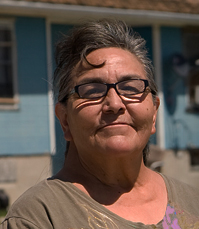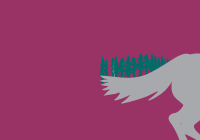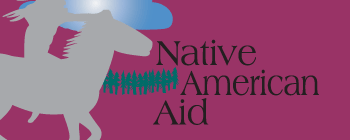|
|

 |

|

|
Primitive, two-room shacks on
Northern Plains reservations
may house more than a dozen people. | Like families everywhere, Native American peoples strive to provide for their children and comfort their elders. In the traditional Native American way, they also share generously with any tribe member in need. Yet on remote reservations in the northern plains, they struggle against enormous odds.
Job opportunities are virtually non-existent. Winters are bitter cold and visits from health care workers are sporadic at best. At the end of each month, children and Elders often go hungry. Many homes lack central heat, running water, electricity, and telephones.
If you thought these conditions didn’t exist in America today, you are sadly mistaken. In fact, 14,500 enrolled tribal members of the Sioux tribe live on the Pine Ridge Reservation in South Dakota, which includes the two poorest counties in the U.S.
 | A huggable friend plus a suitcase of clothes and toiletries can comfort
a child placed in foster care
(NAA staff member's daughter
pictured in order to protect
identity of foster children). | Despite the obstacles, Indians remain devoted to their communities and determined to preserve their cultural heritage. Native American Aid (NAA) sponsors programs that help these proud people rise above the poverty and isolation of reservation life.
These programs address a wide variety of needs among children, adults, and Elderly Native Americans on the Northern Plains. To support these programs, NAA seeks donations from caring people throughout the country. In addition NAA obtains donated supplies from corporations and gift-in-kind charities, from soap and shampoo to diapers, clothing, blankets, food, and more. How can I help?
- NAA Emergency Care
Provides emergency clothing and comfort items for children who must be removed from their homes due to abuse and neglect.
- NAA Elder Care
Assists impoverished seniors by providing toiletry items, under clothes, blankets, and other basic necessities.
- NAA Nutrition Care
Delivers nutritious fruits and vegetables to struggling Indian families.
 | | Volunteers of all ages help sort and distribute goods in their communities. | Unlike many charitable groups, NAA insists that substantial community volunteerism be a part of the processing or distribution of these goods. Volunteerism is key to strong, self-sufficient Native American communities.
This unique relationship ensures that NAA addresses the genuine needs of a community. The programs are more like a partnership and less like charity.
Program Partners are the linchpins of the NAA Way. These volunteers from reservation communities work side-by-side with NAA staff to plan and implement programs where they live. They identify needs, recruit other volunteers, provide community contacts, and reserve facilities for events.
 | On remote reservations,
faces brighten when a truckload of healthful fruits and vegetables arrives. | Volunteers of all ages carry out much of the preparation and distribution work associated with NAA programs. They give their time to help with projects such as sorting bulk deliveries of household products, delivering food to homebound Elders, or packing comfort items for children in foster care.
Program volunteers receive incentive items such as baby food, clothing, and personal care items to thank them for putting forth the extra effort to improve their community.
Everyday NAA and reservation volunteers are working to fulfill our mission: “To help Native American people improve the quality of their lives by providing opportunities for them to bring about positive changes in their communities.” |
|
|















